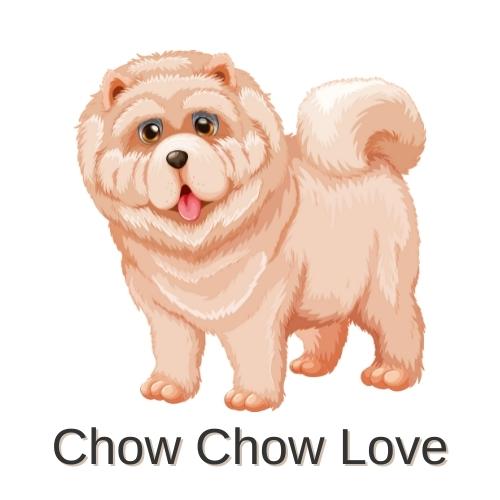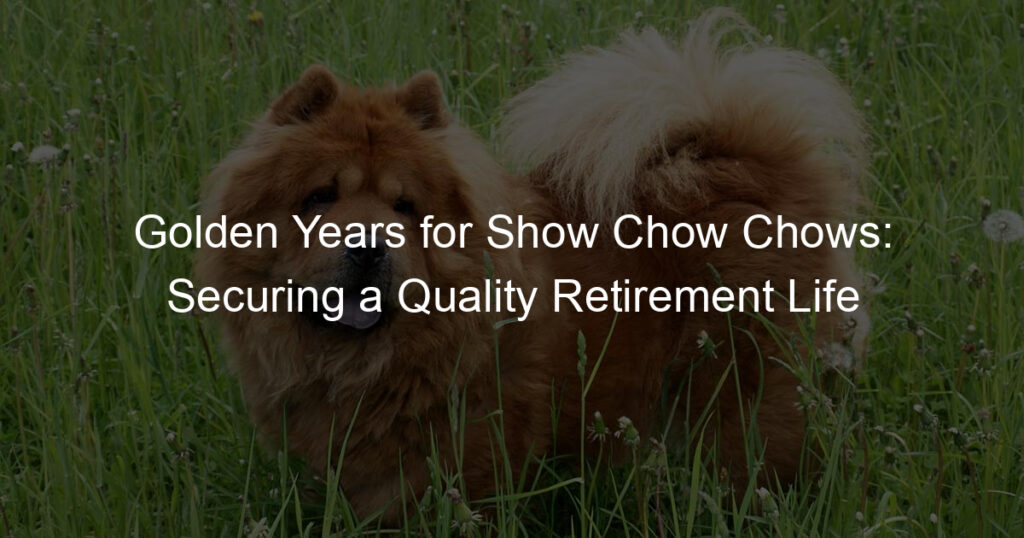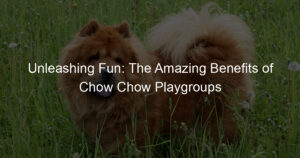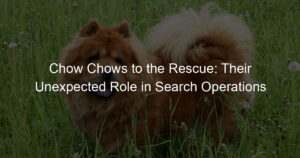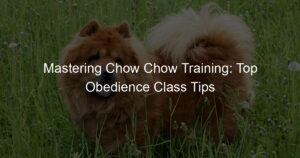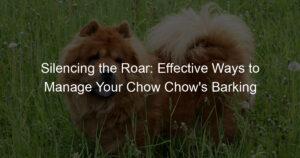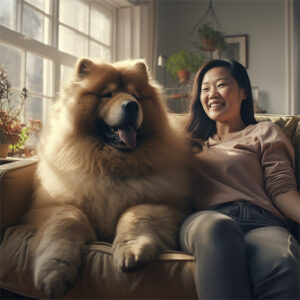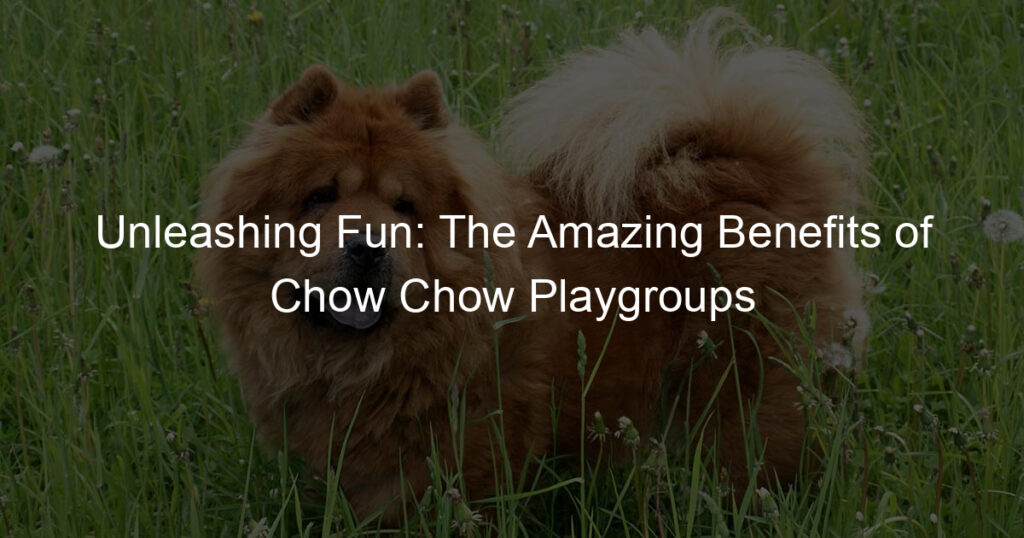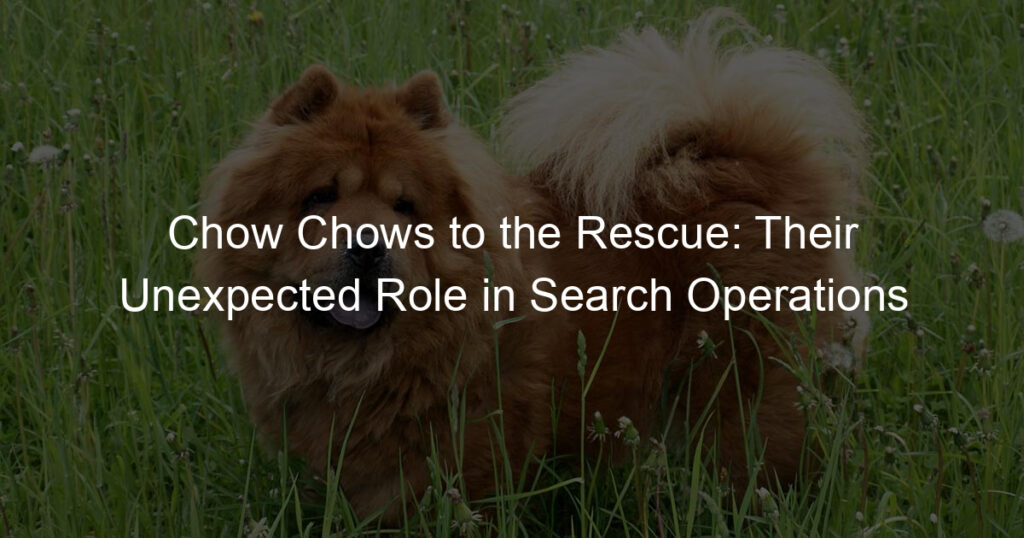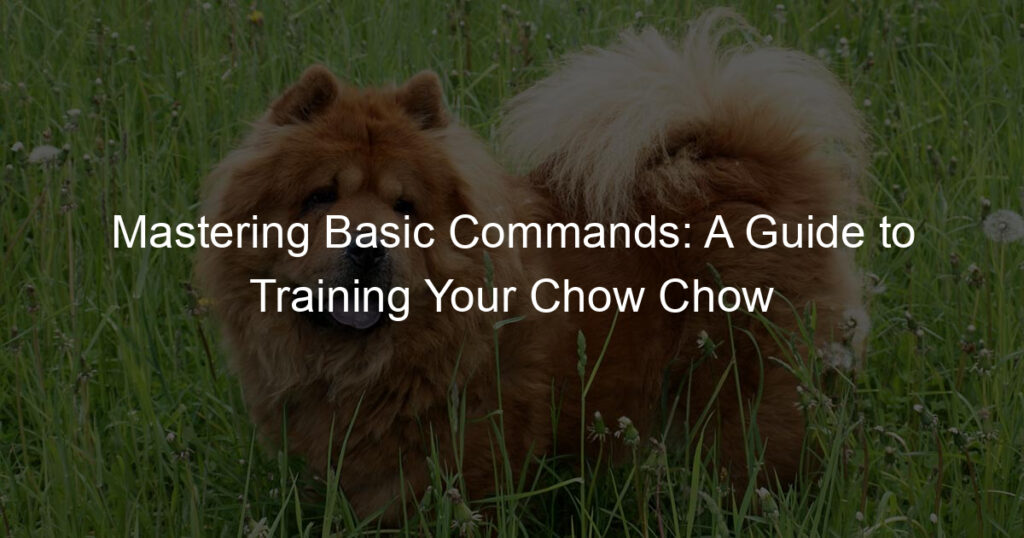Introduction to Chow Chow Retirement
Retirement is a phase of life that every living being experiences, including our beloved Chow Chows. It’s a time when they slow down and enjoy the quieter side of life. This article aims to provide a comprehensive understanding of what Chow Chow retirement means, why it’s important, and what life looks like for a retired Chow Chow.
- Understanding the concept of Chow Chow retirement
- Why retirement is important for Chow Chows
- Overview of the life of a retired Chow Chow
Just like humans, Chow Chows also experience a retirement phase. This usually begins when they reach their senior years, typically around 8 to 10 years of age. During this time, they may become less active and require different care compared to their younger years. It’s a period of rest and relaxation for them after years of being an active, playful, and loyal companion. Learn more about Chow Chows here.
Retirement is a crucial phase in a Chow Chow’s life. It’s a time when their physical abilities may start to decline, and they may require more rest and medical attention. Recognizing this phase and adapting to their changing needs can ensure they live their golden years in comfort and happiness. It’s also a time when they can enjoy a slower pace of life, with plenty of time for cuddles and relaxation.
A retired Chow Chow’s life is typically quieter and slower-paced. They may not be as active as they once were, but they still enjoy the company of their family. Regular vet check-ups become more important to monitor their health. Their diet may need to be adjusted to maintain a healthy weight and to cater to any specific health issues. Despite these changes, retired Chow Chows can still lead a fulfilling and comfortable life, filled with love and care.
In the following sections, we will delve deeper into how to ensure a quality life for your retired Chow Chow, what post-show life looks like for them, and how to care for this breed in their retirement years. Stay tuned!
Quality Life for Retired Chow Chows
Ensuring a quality life for your retired Chow Chow involves more than just love and affection. It requires a dedicated focus on their physical health, diet, and exercise routines. Let’s delve into the details.
Physical Care for Retired Chow Chows
Physical care is paramount for a retired Chow Chow’s well-being. Here are some key aspects to consider:
- Importance of regular vet check-ups: Regular vet check-ups are crucial for monitoring your Chow Chow’s health. These visits can help detect any potential health issues early, ensuring timely treatment. According to Wikipedia, Chow Chows are prone to certain health conditions like hip dysplasia and entropion, which can be managed effectively with regular vet visits.
- Appropriate diet for a retired Chow Chow: A balanced diet is essential for your retired Chow Chow. As they age, their dietary needs change. They require fewer calories but more high-quality proteins and fiber. Consult with your vet to create a diet plan that meets your Chow Chow’s nutritional needs.
- Exercise routines suitable for retired Chow Chows: Regular exercise is vital for maintaining your Chow Chow’s physical health. However, as they age, their exercise needs change. Short, gentle walks and light play sessions can help keep your Chow Chow active without putting too much strain on their joints.
In conclusion, providing quality life for your retired Chow Chow involves regular vet check-ups, a balanced diet, and suitable exercise routines. Remember, your furry friend’s golden years can be just as fulfilling as their younger ones with the right care and attention.
Mental Health of Retired Chow Chows
Just like humans, the mental health of our beloved Chow Chows is equally important as their physical health. As they transition into their retirement years, mental stimulation becomes a crucial aspect of their overall well-being. Let’s delve into the importance of mental stimulation for retired Chow Chows and explore some activities to keep them mentally active.
- Importance of mental stimulation for retired Chow Chows
- Activities to keep your retired Chow Chow mentally active
- Puzzle Toys: These are great for keeping your Chow Chow’s mind active. They require the dog to figure out how to get a treat or toy out of the puzzle, which can be a fun and rewarding challenge.
- Training Sessions: Even in retirement, Chow Chows can still learn new tricks. Short, daily training sessions can help keep their minds sharp.
- Interactive Games: Games like hide and seek or fetch can provide both physical and mental exercise for your Chow Chow.
- Social Interaction: Regular interaction with other dogs or humans can also provide mental stimulation for your Chow Chow.
Mental stimulation is vital for retired Chow Chows to keep their minds sharp and agile. Without it, they can become bored and depressed, leading to a decline in their overall health. According to a study, mental stimulation can help slow down cognitive decline in older dogs, much like it does in humans. It also helps to reduce anxiety and destructive behavior, making your Chow Chow happier and more relaxed.
There are numerous ways to keep your retired Chow Chow mentally stimulated. Here are a few suggestions:
In conclusion, the mental health of your retired Chow Chow should never be overlooked. By providing them with regular mental stimulation through various activities, you can ensure they remain happy and healthy throughout their golden years.
Post-show Life for Chow Chows
After a life of glamour and excitement in the show ring, Chow Chows, like any other show dogs, eventually transition to a more relaxed, post-show life. This phase is as crucial as their show life, and it is important to ensure that they adjust well to this new stage. In this section, we will discuss how to help your Chow Chow transition from show life to retirement.
Transitioning from Show Life to Retirement
Transitioning from the show ring to a more relaxed home life can be a significant change for your Chow Chow. It’s essential to understand this transition phase and learn how to help your Chow Chow adjust to retirement.
- Understanding the transition phase
- How to help your Chow Chow adjust to retirement
- Provide plenty of physical and mental stimulation. This can include walks, playtime, and puzzle toys.
- Keep a routine. Chow Chows thrive on routine, and maintaining a regular schedule can help them adjust to their new life.
- Give them plenty of love and attention. They may miss the attention they got in the show ring, so make sure they still feel loved and valued at home.
Chow Chows are intelligent and adaptable dogs. However, the transition from a high-energy show life to a more relaxed retirement can still be a challenge. They may miss the excitement and attention they used to get in the show ring. It’s important to understand that this is a significant change for them, and they may need time to adjust.
Helping your Chow Chow adjust to retirement involves providing them with a comfortable and stimulating environment. Here are some tips:
Remember, every Chow Chow is unique and may react differently to retirement. The key is to be patient and supportive during this transition phase.
Life After the Show: Case Studies
Let’s delve into some real-life examples of Chow Chows who have successfully transitioned from the show ring to retirement. These case studies will provide you with practical insights and inspiration for your own Chow Chow’s journey.
-
Case Study 1: A Successful Transition to Retirement
Meet Bella, a former show dog who has gracefully transitioned into retirement. Bella’s owners ensured a smooth transition by gradually reducing her show activities and increasing her leisure time. They also introduced new activities like leisurely walks and playtime with other dogs to keep her mentally stimulated.
One of the key factors in Bella’s successful transition was the consistent routine her owners maintained. Chow Chows thrive on routine, and keeping a consistent schedule helped Bella adjust to her new life. Bella’s owners also made sure to provide her with a balanced diet and regular vet check-ups to maintain her health in retirement.
-
Case Study 2: Overcoming Challenges in the Transition
Next, let’s look at Max, another Chow Chow who faced some challenges during his transition to retirement. Max had been a show dog for most of his life, and he initially struggled with the sudden change in routine and lack of regular socialization with other show dogs.
Max’s owners sought the help of a professional dog trainer who suggested introducing new activities slowly and gradually. They also started taking Max to a local dog park for social interaction. With patience and consistent effort, Max was able to overcome the challenges and adjust to his new life.
Max’s case highlights the importance of patience and professional guidance when dealing with transition challenges. It’s crucial to remember that each Chow Chow is unique, and what works for one might not work for another.
These case studies illustrate that with the right approach and plenty of love and patience, your Chow Chow can successfully transition from show life to a fulfilling retirement.
Chow Chow Breed Care in Retirement
As Chow Chow owners, we understand that our furry friends have unique needs that change as they age. When our Chow Chows reach their golden years, it’s essential to adjust their care to ensure they remain happy and healthy. Let’s delve into the specific needs of the Chow Chow breed and how to cater to these needs in retirement.
Specific Needs of the Chow Chow Breed
Chow Chows are a unique breed with specific needs that set them apart from other dogs. Understanding these needs is the first step towards providing the best care for your Chow Chow in their retirement years.
- Understanding the unique needs of Chow Chows
- How to cater to these needs in retirement
Chow Chows are known for their independence and aloofness. They require a balanced diet, regular exercise, mental stimulation, and routine health check-ups. As they age, these needs may change. For instance, they may require a diet tailored to senior dogs, lower-impact exercises, and more frequent health check-ups. They also need more rest and a comfortable living environment.
Adjusting your Chow Chow’s diet and exercise routine is crucial as they age. Opt for senior dog food that caters to their nutritional needs. Consider low-impact exercises like leisurely walks or gentle play to keep them active without straining their joints. Regular vet visits are essential to monitor their health and catch any potential issues early. Lastly, ensure they have a comfortable and quiet space to rest.
In conclusion, understanding and catering to the unique needs of your Chow Chow in their retirement years is crucial to their well-being. Remember, every Chow Chow is unique, and their needs may vary. Always consult with your vet to determine the best care plan for your furry friend.
Common Health Issues in Retired Chow Chows
As Chow Chows age, they may encounter several health issues that are common to the breed. It’s essential to be aware of these potential problems to provide the best care for your retired Chow Chow.
- Common health problems in retired Chow Chows
- Joint Problems: Arthritis and hip dysplasia are common in older Chow Chows. These conditions can cause discomfort and limit mobility.
- Eye Conditions: Chow Chows are prone to eye conditions such as entropion, where the eyelid rolls inward, causing irritation.
- Heart Disease: Older Chow Chows may develop heart conditions, such as congestive heart failure.
- Obesity: Chow Chows love their food, and without proper diet and exercise, they can easily become overweight, leading to other health issues.
- How to prevent and manage these issues
- Regular Vet Check-ups: Regular veterinary check-ups can help detect any potential health issues early, allowing for prompt treatment.
- Proper Diet: Feeding your Chow Chow a balanced diet can help prevent obesity and related health issues.
- Exercise: Regular, gentle exercise can help maintain your Chow Chow’s weight and joint health.
- Eye Care: Regular eye checks can help detect and treat any eye conditions early.
Chow Chows, like many other breeds, can suffer from a variety of health issues as they age. These include:
While some health issues may be inevitable due to genetics, there are steps you can take to prevent or manage these conditions in your retired Chow Chow.
Remember, every Chow Chow is unique and may not experience all these health issues. However, being aware of the common health problems in retired Chow Chows can help you provide the best care for your furry friend in their golden years.
Ensuring Quality Life for Chow Chows Post-show
After a successful career in the show ring, Chow Chows deserve a retirement that is full of comfort, happiness, and health. Here, we will discuss some essential tips and strategies to ensure a quality life for your Chow Chow post-show.
Tips for a Happy and Healthy Retirement
Retirement for Chow Chows doesn’t mean an end to their active life. It’s a new chapter where they can enjoy their time with less stress and more fun. Here are some key takeaways to ensure a quality retirement life for your Chow Chow:
- Regular Exercise: Even in retirement, Chow Chows need regular exercise to maintain their health and happiness. A daily walk or playtime in the yard can keep them active and content.
- Proper Diet: A balanced diet is crucial for a Chow Chow’s health in retirement. Consult with your vet to determine the best diet plan for your retired Chow Chow.
- Regular Check-ups: Regular vet check-ups can help detect any potential health issues early. Early detection can lead to more effective treatment and a better quality of life.
- Love and Attention: Retired Chow Chows need more love and attention. Spend quality time with them and make them feel loved and valued.
Now, let’s look at some examples of retired Chow Chows living a quality life:
- Max: After retiring from the show ring, Max enjoys his daily walks in the park and loves playing with his favorite toys. His owners ensure he gets a balanced diet and regular vet check-ups.
- Luna: Luna loves her retirement life. She spends her time exploring the yard and enjoying the sunshine. Her owners give her plenty of love and attention, which keeps her happy and content.
Ensuring a quality life for your retired Chow Chow requires commitment and love. By following these tips, you can make their retirement years happy, healthy, and enjoyable.
